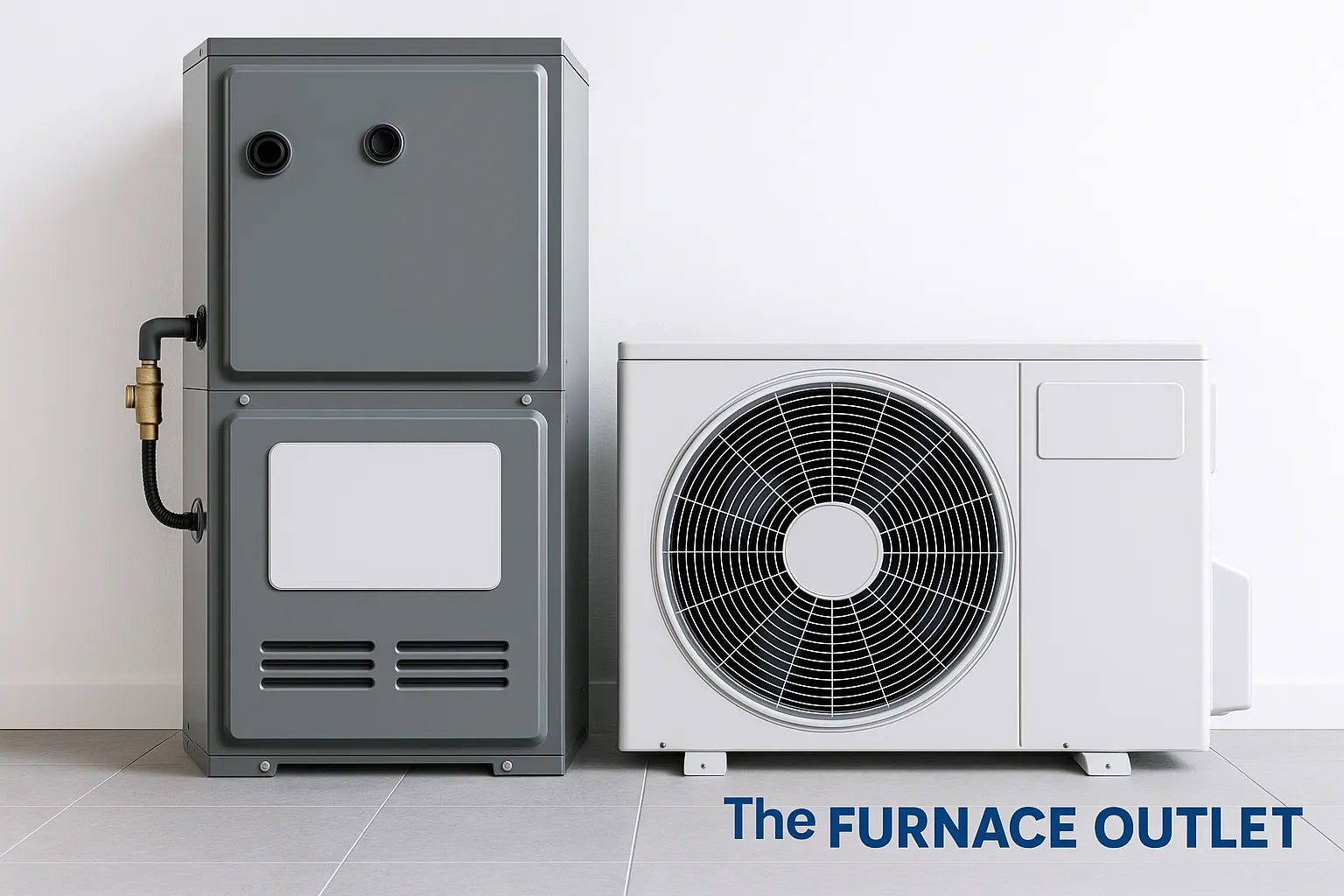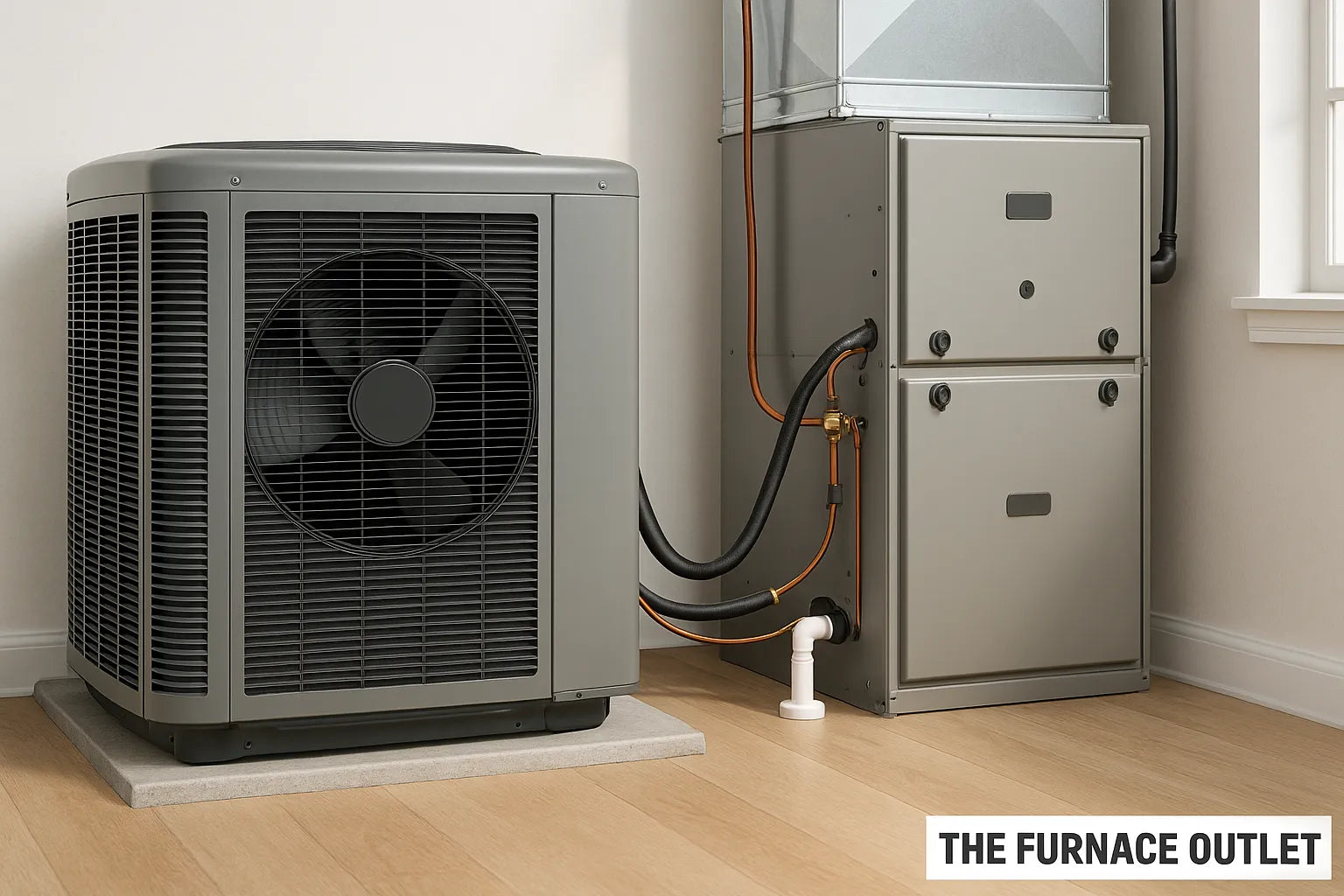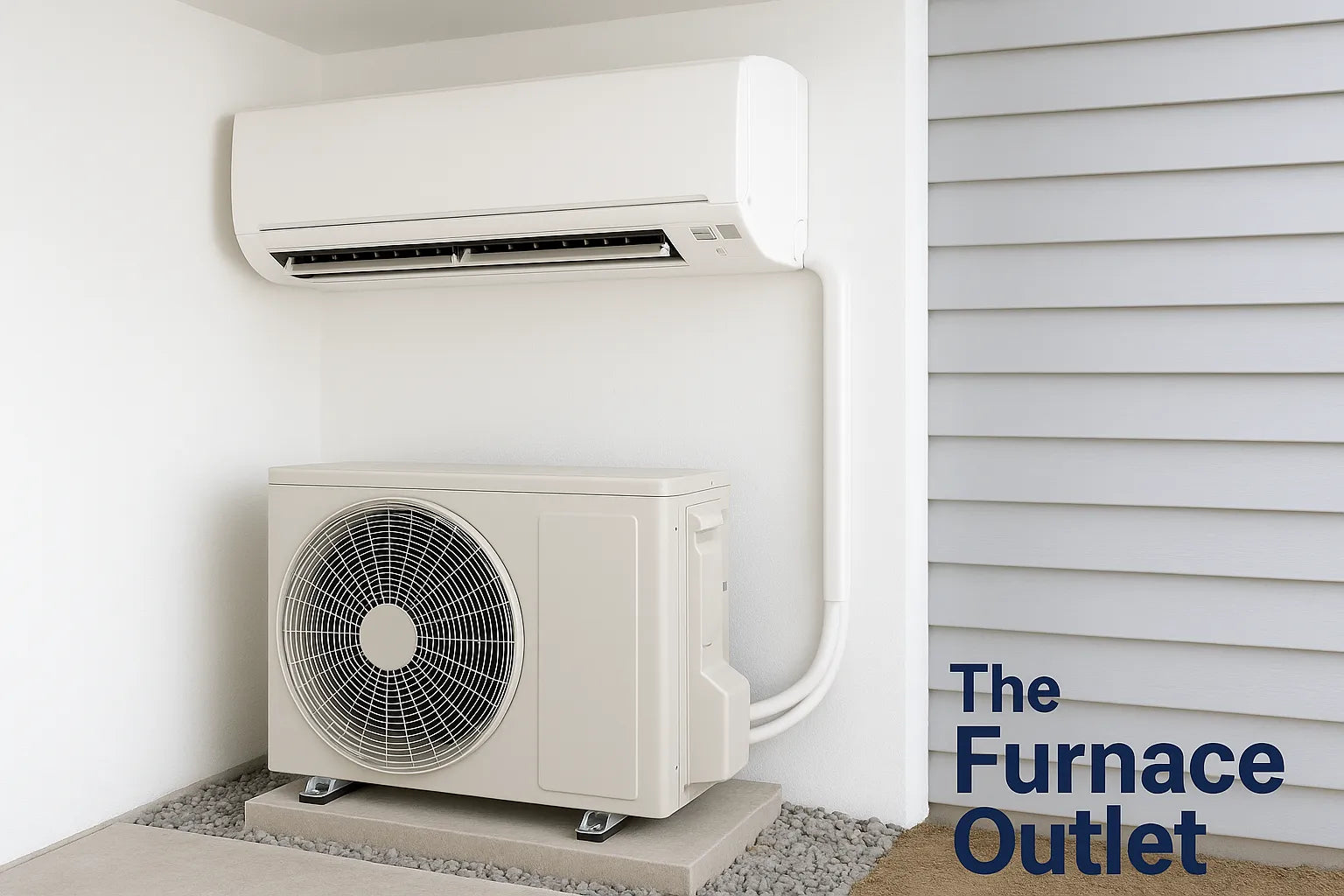News

Delaware Heat Pump Rebates & Tax Credits 2025: Save Up to $12,200

Central Air Installation Process: How It Works, Costs & Timelines Explained
Installing central air isn’t just swapping equipment it’s a step-by-step process that ensures comfort, efficiency, and longevity. This guide breaks down each phase, from Manual J load calculations and duct design to refrigerant evacuation, electrical setup, and final inspectio

Understanding Trane HVAC Systems: A Comprehensive Guide
When shopping for a new HVAC system, it’s easy to get overwhelmed by big names like Trane, American Standard, and Goodman. Many homeowners ask questions such as what is a Trane, who makes Trane air conditioners, or even does Trane own American Standard? Understanding the connections between these brands can help you make a smarter investment.
Trane HVAC brands are widely known for durability and premium pricing, while American Standard, the Trane company, often delivers nearly identical technology at a slightly lower cost. Both are manufactured by Trane Technologies. Goodman, on the other hand, has built its reputation on affordability, reliable performance, and strong warranties—making it a favorite for homeowners seeking value.
Efficiency should be a key factor in your decision. According to ENERGY STAR, upgrading to higher SEER systems can significantly reduce utility bills, and the U.S. Department of Energy notes that heating and cooling account for nearly half of a home’s energy use. That’s why bundles like the Goodman 3 Ton 14.5 SEER2 R32 system offer strong value, combining eco-friendly refrigerants with dependable performance.
Whether you’re considering a Trane American Standard furnace or a Goodman packaged unit, the most important factors remain proper sizing, expert installation, and consistent maintenance. With the right approach, your system can deliver comfort, savings, and peace of mind for years to come.

The Homeowner’s Ultimate Guide to Goodman HVAC Systems
Looking for a reliable and energy-efficient cooling solution for your home? Goodman HVAC systems offer options for nearly every homeowner, from Goodman 3 ton AC units 16 SEER to Goodman 5 ton 16 SEER air conditioners and ductless mini splits. These systems combine durability, efficiency, and flexibility, making them ideal for homes of all sizes.
Goodman packaged units house both heating and cooling components in a single outdoor cabinet, saving indoor space and simplifying installation. Split systems and mini splits allow for flexible installation and zoned comfort. Higher SEER models, including 16 SEER and 18 SEER heat pumps, reduce energy costs while maintaining year-round comfort.
Pricing varies by model and capacity, but investing in a Goodman system ensures long-term reliability and efficiency. Proper installation by a licensed contractor and regular maintenance—like filter changes and condenser cleaning—are essential to maximize performance and lifespan.
Whether you’re considering a Goodman 4 ton 16 SEER unit, a Goodman 5 ton 16 SEER air conditioner, or a compact ductless mini split, Goodman provides a range of solutions tailored to your home’s cooling needs. For those looking for an all-in-one bundle that simplifies installation, the Goodman 3 Ton 14.5 SEER2 R32 Bundle is an excellent example of their quality and efficiency.

The Homeowner’s Ultimate Guide to Goodman 4-Ton AC Units
Looking for a reliable and energy-efficient air conditioning solution? Goodman 4-ton AC units offer homeowners a durable, all-in-one option that combines heating and cooling in a single outdoor unit. These systems are ideal for larger homes or spaces with higher cooling needs, providing up to 48,000 BTUs of cooling power.
The 4-ton Goodman units are available in various configurations, including 14 SEER and 16 SEER models, giving you flexibility to balance efficiency and upfront cost. The condenser for Goodman air conditioners is designed to withstand outdoor elements while maintaining optimal performance. Regular maintenance, including filter changes and condenser cleaning, ensures longevity and energy savings.
Whether you’re exploring a Goodman 4-ton unit, a Goodman 4-ton 14 SEER AC, or comparing models for price and efficiency, these systems deliver comfort, reliability, and energy-efficient operation. Professional installation and annual inspections help maintain performance and protect your investment.
For those interested in bundled solutions that combine heating and cooling, the Goodman 3 Ton 14.5 SEER2 R32 Bundle showcases the quality and efficiency you can expect from Goodman products.

The Homeowner’s Ultimate Guide to Goodman 3-Ton & 4-Ton Package Units
If you’re looking for a reliable HVAC solution, Goodman package units are a top choice for homeowners seeking efficiency, durability, and space-saving design. These all-in-one units combine heating and cooling in a single outdoor cabinet, making them ideal for medium to large homes.
A 3-ton Goodman package unit provides 36,000 BTUs of cooling, perfect for medium-sized spaces, while a 4-ton unit offers 48,000 BTUs for larger homes or open floor plans. Models with higher SEER ratings, like 16 SEER, provide energy-efficient performance, helping you save on utility bills while reducing environmental impact.
Choosing the right model requires careful consideration of your home’s size, cooling demands, and energy efficiency goals. Professional installation and routine maintenance—including filter changes, coil cleaning, and annual inspections—are key to ensuring your unit performs optimally for years.
Goodman packaged units offer a durable, long-lasting solution that simplifies installation and maintenance while keeping your home comfortable. Whether you’re interested in a Goodman 3 ton 14 SEER package unit, a 16 SEER model, or a 4-ton package unit, these systems deliver reliable, energy-efficient cooling and heating.
For a bundled HVAC solution example, the Goodman 3 Ton 14.5 SEER2 R32 Bundle highlights the quality and efficiency you can expect from Goodman systems.

The Ultimate Homeowner’s Guide to 5-Ton Split AC Systems
If you’re considering a 5-ton split system for your home, understanding its benefits, capacity, and maintenance needs is key. A 5-ton AC unit can remove up to 60,000 BTUs per hour, making it ideal for larger homes or spaces with high cooling demands.
A split system separates the indoor air handler and outdoor condenser, providing efficient cooling, quieter operation, and flexible zoning options. Modern high-SEER systems, like the Goodman 5 Ton 14.5 SEER2 R32 Heat Pump, deliver reliable comfort while saving energy and reducing costs.
Proper sizing is crucial: an oversized unit cycles too frequently, while an undersized unit struggles to maintain temperatures. Professional HVAC load calculations ensure you get the right system for your home.
Regular maintenance—such as cleaning filters, checking refrigerant, and scheduling annual inspections—keeps your 5-ton split AC unit running efficiently and prolongs its lifespan.
By investing in a high-quality 5-ton AC unit split system, you can enjoy consistent indoor comfort, lower energy bills, and peace of mind for years to come.

Everything You Need to Know About Goodman AC Systems: From 3 Ton 14.5 SEER2 to 5 Ton 16 SEER Units
Discover everything you need to know about Goodman air conditioners, from the 3 Ton 14.5 SEER2 R32 system to 5 Ton 16 SEER units. Mike Sanders breaks down mini splits, ductless options, efficiency ratings, installation tips, and pricing so homeowners and contractors can make informed choices.

Goodman 4-Ton Package Units: Your Complete Guide to 14 SEER & 16 SEER Systems
Explore the features, benefits, and considerations of Goodman 4-ton package units, including 14 SEER and 16 SEER models. Learn about pricing, installation, and maintenance tips to make an informed decision for your home's cooling needs.

Goodman 3-Ton Package Units: Your Complete Guide to 14 SEER & 16 SEER Systems
Explore the features, benefits, and considerations of Goodman 3-ton package units, including 14 SEER and 16 SEER models. Learn about pricing, installation, and maintenance tips to make an informed decision for your home's cooling needs.

Understanding the 5-Ton Split System: A Comprehensive Guide
Explore everything homeowners need to know about 5-ton split systems, from sizing and installation to energy efficiency and maintenance. Learn how a 5-ton AC unit split system delivers reliable cooling for larger homes, what features to look for, and how to keep it running efficiently for years.


